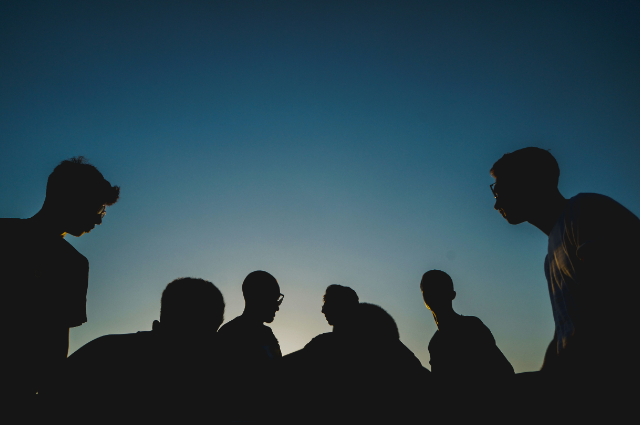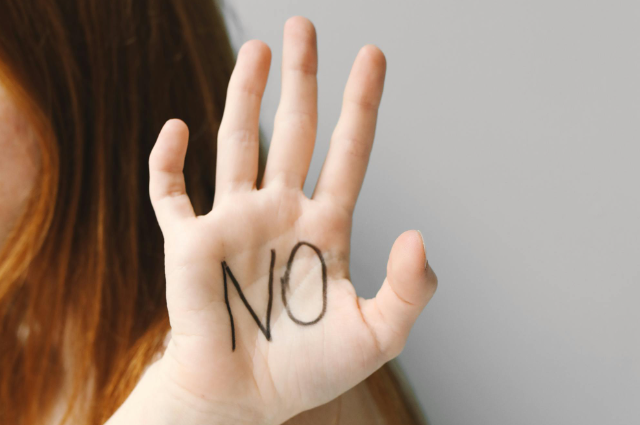
Photo by Papaioannou Kostas on Unsplash
A lot of time when people face problems in life from major to minor, there is a certain and different kind of thinking that arise in people. This thinking depends on many external and internal factors. The external factors that mainly depend on are the company we keep and the surroundings we create. There is a saying “Your vibe attracts your tribe” and this is somewhat true but not completely. When we describe the word vibe it basically represents a lot about a person. It represents the person’s personality, the behavior, the mental capacity, the body language and the gestures that they perform. For a good gesture, a person should have a refreshed mind and an optimistic body. An optimistic body is created only when the person himself adapts to a positive attitude and learning. A person involved in past cannot have a vision about the future. For example, if we take the case of a person who has seen a lot of poverty during the childhood era of his life is still stuck with the mindset of the past entities and the financial behavior of his family cannot really process the present and eventually the future is nothing but a blur.
Have you ever noticed a mother duck and its ducklings? When the ducklings are born they are fragile and unknown of this massive world. The mother duck teaches all her children to swim, to walk, to eat and survive. But the major question arises does the mother duck give up? Or do the baby ducklings give up? No, they don’t because they don’t because they are only taught to survive not to surrender. They develop new skills because they have to compete with others.
We as humans have evolved through centuries and are still evolving. We are considered as the most intelligent and smart creatures of the living. We have the five senses in us and the ability to decide for ourselves. But the only thing we can’t control is the life and death; the ending of this beautiful life and this magical body. Should we waste this life of ours by the word no? Should we say no to our dreams, our aims and our vision? Should we give up on the life we have dreamt about? No, we don’t. What would have happened if we had said no and given up when we started to crawl and walk or learn a bicycle? Do you think the humans would have survived? We had problems; we faced our ups and downs. But, did we say no? Yes, we did. But to our problems not to our efforts and hard work.
The human brain is a powerful tool. It has skills, emotions, intelligence, knowledge, and a vast ocean of ideas. With such a beauty the human brain is created with the slim and long nerves, just like a body of a model to run endlessly and make a magical world. It can make the impossible happen and the possible beyond imagination.
We the generation, called the GenZ are living in a very technical and practical era. There is nothing that is impossible for us. We have developed brains, intelligent machines and the flexibility to gain everything we want. We are marked by our broad mindsets and the boldness. There is no dependency we want to live with. We have grown up in a world facing challenges like the climate change, inequality, mental health crisis, and the economic instability that has developed a sense of responsibility to speak up and act.
The traditional "9-to-5" is increasingly a model out of step with the values and economic reality for many members of Gen Z. Coming of age during the Great Recession and having watched older siblings, Millennial, grapple with student loan debt and afford housing options, they are redefining success. In response, Gen Z places a growing premium on flexibility, work-life balance, and purpose-driven careers. Many of them reject an idea of work in industries, which compromise their ethical values and focus on entrepreneurship, freelance job, and other work that align with aspirations of social impact they have.
It is also reflected in their demand for corporate responsibility, audacity to say "no" to unsustainable work models. Nowadays, companies are held accountable for their environmental impact, social contributions, and overall ethical practices. Via social media, Gen Z amplifies such calls for corporate transparency that reshapes consumer behavior and makes companies adapt or lose relevance.
Climate Crisis: "No" to Environmental Degradation
Perhaps no issue has ever united Generation Z, apart from the climate crisis. To this generation, it is more apparent that they will be taking over a planet on the verge of an environmental catastrophe. But for them, this grim fact is definitely not their fate. On the contrary, they have rallied millions across the world to take to the streets, insisting on climate action. Figures like Greta Thunberg became symbols of this generation's resilience and determination to hold global leaders accountable for the degradation of the environment.
Instead of waiting for governments or companies to take action, many young people immediately started grassroots activism, climate education, and changes in lifestyles to reduce their ecological footprint. They say "no" to inaction by urging sustainable life practices at an individual level to systematic changes in livelihood.
Mental Health: Re-defining "No" as Self-Care

Mental health is the hot topic of Gen Z, widely acknowledging anxiety, depression, and burnout as if they were dancing with them. And in a way that removes hustle culture and toxic productivity from its pedestal, they make sure the conversations around mental health and self-care get normalized. They dare say "no" to the expectations society might have to only see them churning out output and perfection.
By embracing therapy, mindfulness, and self-care, members of Generation Z break down the stigma that surrounds mental health issues. Their openness about emotional struggles has opened a way for more inclusive dialogue on mental health, making access to support easier for future generations.
Social Justice: Saying "No" to Inequality
Gen Z is very engaged with social justice, particularly on issues of racial, gender, and economic inequality. They are very fair-minded and have little patience for injustice; thus, they tend to be very vocal in protests, social movements, and digital activism. Be it fighting for LGBTQ+ rights or participating in Black Lives Matter protests, Gen Z is vocal to say no to systems of oppression that are outdated.
Most times, it's intersectional, too, as if dealing with one form of inequality can't be separated from another-race and gender or class. Such multilayered activism, furthermore, outclasses both the status quo and wider systems that continue to propagate inequality, confirming the fact that members of Gen Z simply can't sit around when injustice becomes the norm.
The Role of Technology: Amplifying the "No"
If anything, it was social media that created a path for Gen Z that was unprecedented in reaching out for information and to voice their opinions. Mastery of digital activism is one of the features that make their generation particular in the way they manifest civic engagement on Twitter, TikTok, and Instagram-not just for sharing opinions but for organizing and mobilization. Technology makes it possible to scream "no" in real time as they call out public figures, corporations, and institutions when something has gone wrong.
Also, the relationship of Generation Z with technology allows them to move beyond these traditional keepers of knowledge and power. They can take on issues, organize global movements, and, in fact, demand change, often right now. In that sense, the audacity to say "no" is individual and collective at once, using technology to have one's voice grow loud worldwide.
Conclusion
For Generation Z, saying "no" to their problems is far more than an inability to accept the status quo; it's a call to arms. Whether economic inequality, climate change, mental health, or social justice, this generation is rewriting the way in which citizens engage. They are reenvisioning what it looks like to face their challenges by intermingling activism, technology, and collective responsibility. By a self-sustaining audacity, they open up to everyone a vision of hope for a better future than what they themselves have ever had, one that has been at once fairer, more sustainable, and more conscious.
